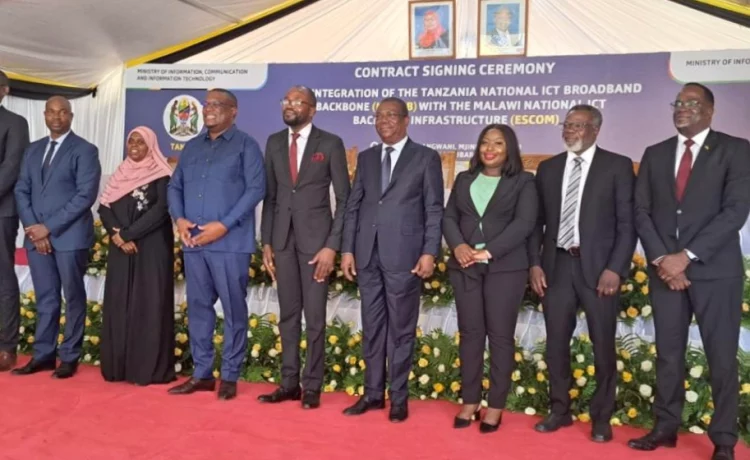The Memorandum of understanding that the Malawian Minister for Information and Digitalization, Moses Kunkuyu and Tanzanian Minister for Information, Communication, and ICT, Nape Moses Nnauye signed in July this year will soon start to bear fruits.
The purpose of this agreement was to enhance data accessibility in Malawi by establishing connections to submarine cables through non-commercial channels. In furtherance of this initiative, the Electricity Supply Corporation of Malawi (ESCOM) Limited has collaborated with the Tanzania Telecommunications Company Limited (TTCL) by signing a commercial agreement on September 8, 2023.
This agreement will enable Malawi to access a high-speed optical fibre-based network, ensuring that the internet is both affordable and reliable throughout the country. The agreement was formalized in Zanzibar by ESCOM Chief Executive Officer Mr. Kamkwamba Kumwenda and his TTCL counterpart, Peter Ulanga.
This digital advancement presents significant opportunities for Africa. To fully leverage these prospects, African nations have opted to work together. The Malawian Minister of Information, speaking after the agreement was signed in July 2023, highlighted that cooperation with Tanzania in the digital realm will facilitate direct country-to-country connectivity, thereby reducing data transmission costs.
He stated, “Currently, we rely on provider cables to connect to Tanzania and other countries. However, by establishing a direct state-to-state infrastructure, in this case, ESCOM and the TTCL, we will lower the operational costs of bandwidth in the country, ultimately reducing data expenses for consumers.”
This MoU is the result of discussions held during the visit of Samia Suluhu Hassan, the leader of Tanzania, to Malawi. For Malawi, this agreement aligns with its 2021-2026 digital economy strategy, which aims to provide affordable internet access to 65% of the country’s population. For Tanzania, it supplements a series of recent partnerships signed by the government to advance internet development in the country. The objective is to connect nearly 80% of the population to the internet and increase broadband usage from 45% to 80% by 2025.













